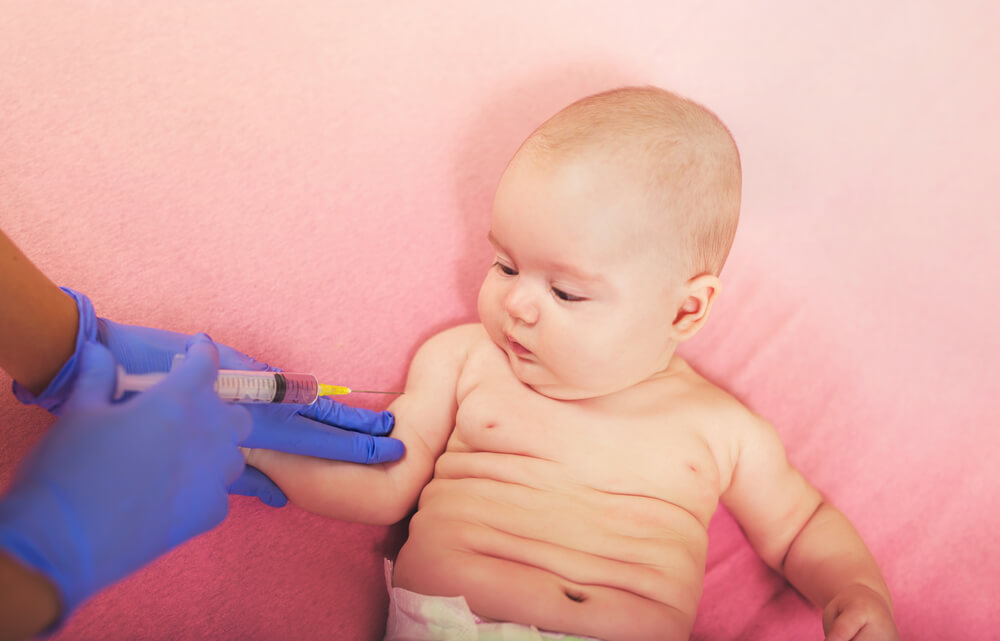
Everything You Need To Know About Hepatitis B In Children
1 Jul 2022 | 4 min Read
Tinystep
Author | 2574 Articles
Hepatitis B is a liver disease mainly caused by the hepatitis B virus (HBV). It is very contagious and can spread very easily. In the initial stage, the person infected with the virus can develop acute hepatitis. As the infection spreads, it becomes chronic hepatitis. The infection sometimes shows no symptoms. However, it can turn deadly and lead to hospitalization. It depends on the immune system of an individual. Infections in children show no or very few symptoms. Effective vaccines are available to prevent the infection. Also, there are medications available to treat chronic hepatitis B infection.
HBV is transmitted through blood and other body fluids. Adults can get the infection through unprotected sex or by using the a syringe used on a person with the infection. If a pregnant woman is affected by the virus, her child will get infected with the same through the mother’s blood and vaginal fluids during childbirth. Hepatitis B is quite common among children. Among the children born to mothers with the virus, about 90% children under the age of 1 and about 30% of children between the age of 1 to 5 eventually suffer from chronic hepatitis
Hepatitis B can only be transmitted from an infected person. The following children are at risk of being affected by the virus
1. Children born to mothers with acute or chronic hepatitis B.
2. Children born to mothers who have come from a country where hepatitis B is widespread. In countries like Southeast Asia and China, it is very common.
3. Children who live in households where someone is infected with the virus
4. Children with haemophilia are also at risk.
Symptoms
Sometimes the infected child may not show any symptoms. However, there are a few mild as well as severe symptoms of hepatitis B. They are:
1. Severe abdominal pain
2. Colour of the urine appears really dark
3. Joint pain accompanied by fever
4. Loss of appetite along with severe nausea and vomiting
5. The infected person will always feel weak.
6. The skin color and the white part of the eye turns yellowish just like in the case of jaundice.
Diagnosis
The diagnosis of hepatitis B includes a series of blood tests. These include:
1. Hepatitis B surface antigen test
This is to show whether the child is infected with the virus. However, this test does not help distinguish between an acute and a chronic infection.
2. Hepatitis B core antigen test
This test is to determine whether the child is infected with the virus or not, and in which stage they are in. It can differentiate between an acute and a chronic infection.
3. Hepatitis B surface antibody test
This test helps check the immunity of the infected child against HBV. A positive result means that the person is immune to the virus.
4. Liver tests
Liver tests are a compulsion for signs of a liver infection. This test checks the function of the liver and also the amount of enzymes that are being produced. If the liver is infected, this means the organ has an infection.
Treatment
Acute hepatitis B generally doesn’t require any treatment as such. Most acute infections are cured with proper rest and care.
However, for chronic hepatitis B, there are a few antiviral medications to help to fight the virus and make the liver immune to future infections.
If there is severe liver damage, doctors suggest a liver transplant.
Vaccination for children
Vaccination is the best way to prevent hepatitis in children and prevention is always better than cure. There are three vaccines to be given for hepatitis B.
1. 1st Shot – It can be given at any time. However, it is necessary that newborns receive this dose in the delivery room itself.
2. 2nd Shot – It should be given at least one month (or 28 days) after the 1st shot of vaccine.
3. 3rd Shot – It is given after a gap of six months from the 1st shot (or at least 2 months after the 2nd shot).
A


Suggestions offered by doctors on BabyChakra are of advisory nature i.e., for educational and informational purposes only. Content posted on, created for, or compiled by BabyChakra is not intended or designed to replace your doctor's independent judgment about any symptom, condition, or the appropriateness or risks of a procedure or treatment for a given person.
